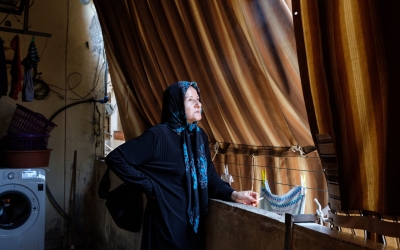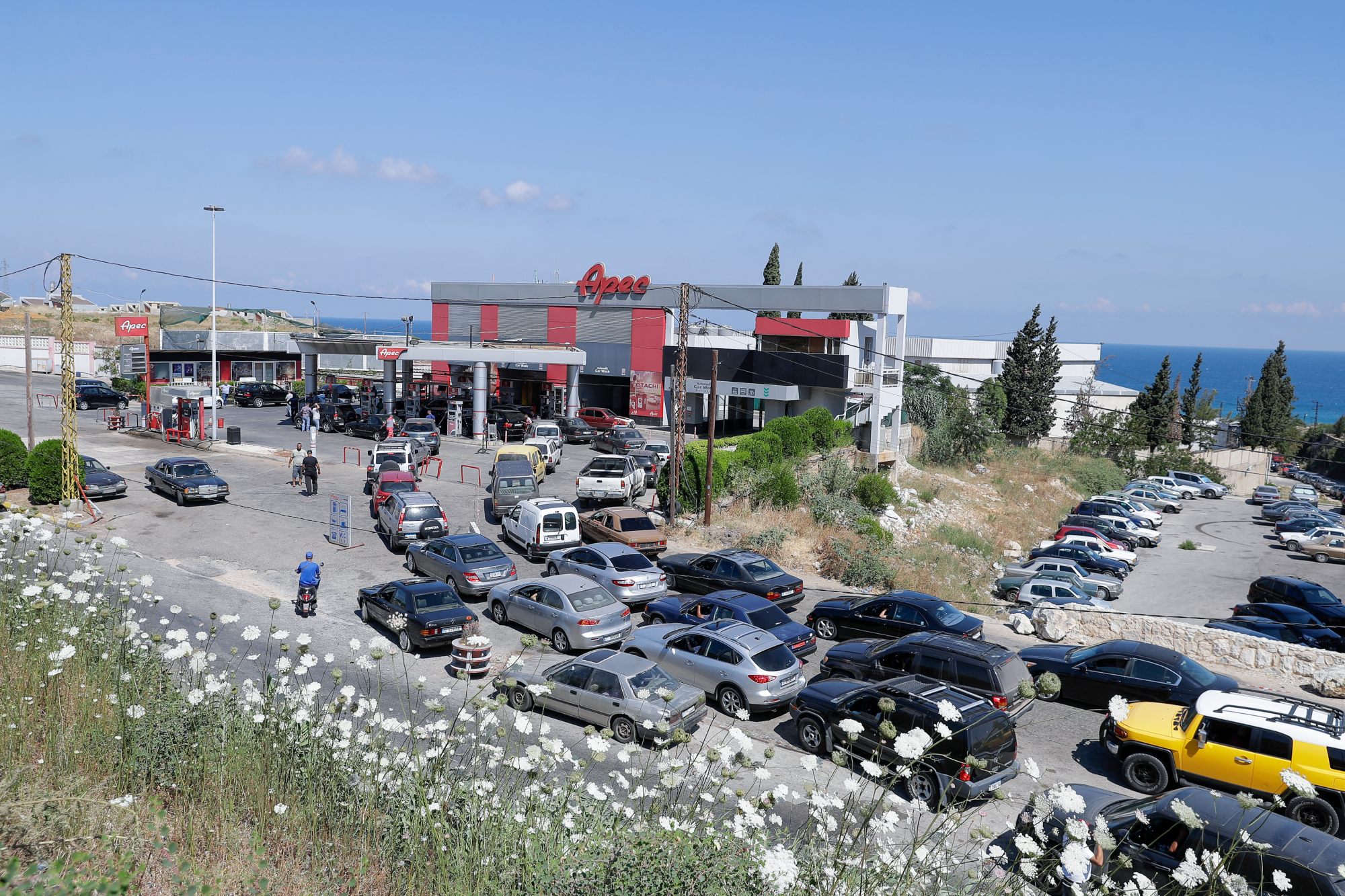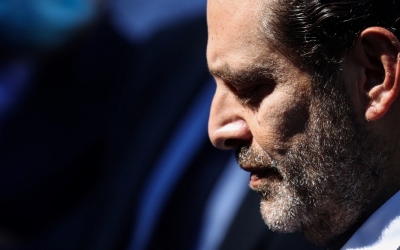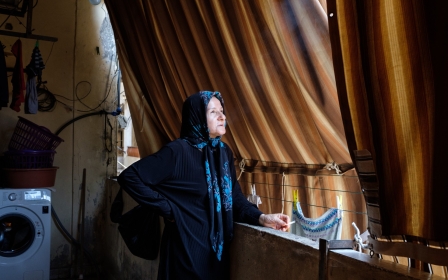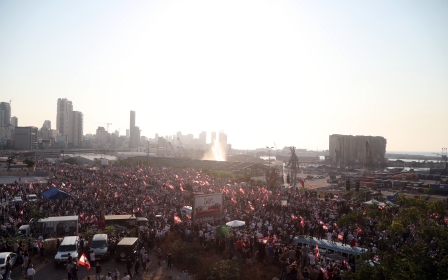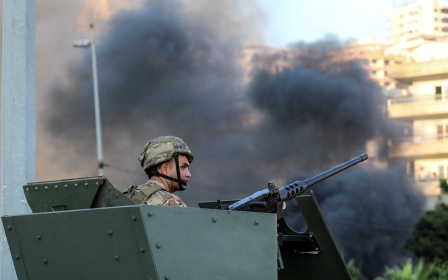Lebanon's fuel lines, a bleak symbol of economic collapse
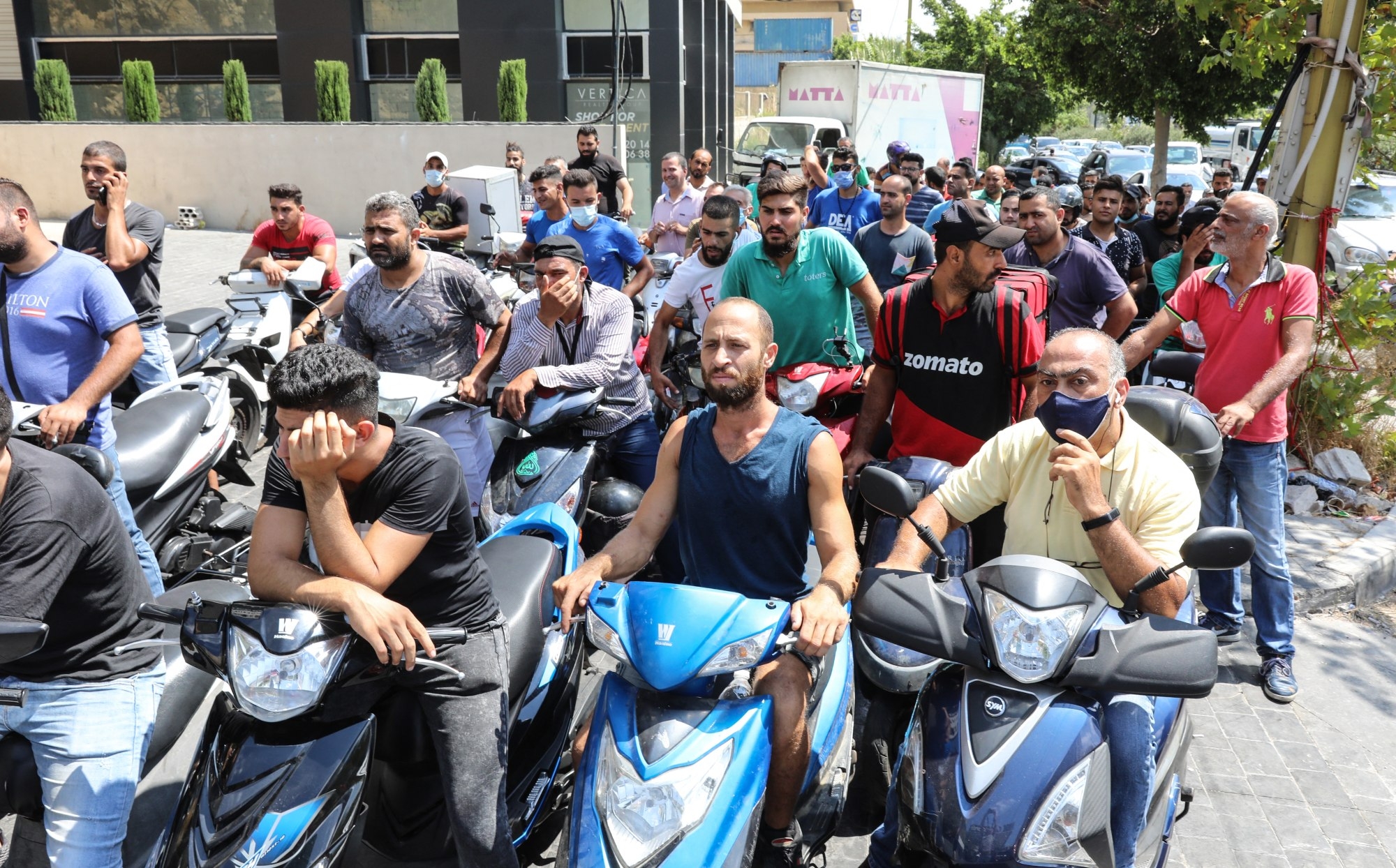
The streets of Tripoli, Lebanon's second city, are always busy, jam-packed with cars and scooters whizzing around. But in this summer's scorching heat, the gridlocked traffic stretching for well over a mile isn't stuck in place because it is rush hour; there's just a long queue of cars at a petrol station.
Fuel and diesel shortages have fuelled tensions among residents in cash-strapped Lebanon as they struggle to fill up their cars and keep the lights on and fridges running at home.
Some drivers, like high school teacher and volunteer community worker Nour Jaffan, have been waiting for hours.
"Some of these cars have been here since yesterday, can you believe it?" she told Middle East Eye. "We live through this, almost on a daily basis."
While stuck in a queue, Jaffan tries to distract herself from the sweltering heat, the sounds of car horns and angry drivers yelling at each other.
"I try to catch up on reading," she said with an awkward laugh. "But you still feel sad."
At times, drivers wait for hours, only to be told by the time it is their turn that there is no petrol left. Those moments quickly turn tense; drivers might accuse fuel distributors of hoarding their supplies, while security forces try to break off the shouting and shoving matches to clear traffic as petrol station workers place barbed wire and barricades around the perimeter.
When things get out of control, it could take firing warning shots into the air to force people to leave. Sometimes, even that's not enough.
In Tripoli's Bab al-Tabbaneh neighbourhood, two men died on 2 August following a dispute over a fuel purchase. Not only were there gunshots; someone even lobbed a grenade.
Just a 30-minute drive east, in Bakhaoun, a man succumbed to his wounds that same day after a fight at a petrol station. The altercation reportedly began with punches, then knives and sticks, until one man pulled out a gun and shot the other twice in the heart.
The funerals of the three men have highlighted the palpable tension and anger in Lebanon nearly two years into a crippling economic crisis and ongoing political paralysis. Young men fired AK-47 rounds into the air while family and friends carried the coffins to their graves.
On top of a spiralling currency crisis, Lebanon has found itself at a political impasse, its ruling parties of warlords turned politicians and businessmen and private cronies having failed for over a year to form a government in the wake of last August's Beirut port explosion.
The United Nations says that up to 78 percent of the Lebanese population was living in poverty as of March, as the price of food has increased by well over 400 percent. Petrol station lines have become a tragic illustration of Lebanon's new reality, the precipitous crumbling of an economy and basic services with no end in sight.
Struggling to keep the lights on
Jaffan once considered herself middle class, and would work extra hours as a private tutor in order to travel with friends in the summer and attend music festivals. With the salary of her full-time job now worth far less than before, tutoring has instead become a way for her to "compensate for her losses".
"These incidents in Tripoli are not unique," she said. "People feel worthless."
Even in the years preceding the country's currency crunch, Tripoli and northern Lebanon were considered among the poorest and most deprived areas of the country, marred by extreme economic inequality, corruption, and even armed conflict.
Bassem Bakhash, a university professor and member of Tripoli’s municipal council, compared the developments in the city to a horror movie.
"Even before the uprising, Tripoli has been struggling with high poverty rates and crime," he told MEE. "We can't even keep the lights on at the municipality, and public institutions are barely functioning."
He expects violent confrontations at petrol stations to continue so long as the economic crisis isn't resolved.
"We're seeing lots of fights that sometimes even lead to murder over mundane matters," Bakhash said. "People have reached out to us to help them secure fuel, medicine, or even bread."
The tensions and skirmishes on the streets, be it in Tripoli or elsewhere, are to be "expected," Farah al-Shami, a research fellow at the Arab Reform Initiative, told MEE.
"The economic collapse was swift and did not give enough time for people to adjust, nor was it faced with rational policies from the decision makers," she said. "This led to impoverishment, more social vulnerabilities, institutional failures and enhanced competition over scarce resources."
No end in sight
The situation continues to take a turn for the worse in Lebanon, the result of decades of wasteful and ineffective policies. Among them are the Central Bank's fuel subsidies, through which it supplies dollars to licensed companies to import petrol at the official pegged rate of 1,500 Lebanese pounds to the US dollar. The market rate is over 20,000 Lebanese pounds to the US dollar, effectively devaluing the Lebanese pound by over 90 percent.
Fuel shortages have persisted since the spring. As snaking queues have grown longer, many have accused distributors of hoarding or smuggling fuel to neighbouring Syria to sell at a greater profit. Fuel distributors, meanwhile, have said that the Central Bank was not opening lines of credit.
Power cuts have worsened across the country, with many households resorting to buying diesel fuel for private generators on the black market.
Subsidies on wheat, fuel, and some medicine cost about $6 billion every year. By late May, the authorities agreed to partially lift subsidies to ease access, but the initiative has already failed. The Central Bank announced on the evening of 11 August that it would only supply dollars to importers at the market rate based on prices determined by the Energy Ministry, because it is dipping deep into its reserves, estimated at just around $15 billion.
Unsure of what will happen to fuel prices, many petrol stations have closed, including in Tripoli. But Bakhash says cars are still lining up, hoping for a miracle.
"People are just living with their hearts in their hands at this point," he said. "They're hoping that maybe, just maybe, the petrol station will open up for a bit."
Bakhash said Tripoli had sent a delegation of municipal and religious officials to caretaker Prime Minister Hasan Diab to secure diesel for generator distributors to help power up homes and businesses.
"He was able to supply us with just 30,000 litres, though the demand was something along 500,000 litres,” Bakhash said. "People don't know how they can keep on living anymore."
Lebanon has not had a fully fledged government in over a year and has not adopted a comprehensive economic recovery plan.
"Not only Lebanon is witnessing a policy of inaction, but also a consequent state of social inaction despite the dire socioeconomic situation," Shami said. "With coexistence and social cohesion being weak in Lebanon, we are also observing an unstable social scene and a shaky political landscape."
With the possibility that fuel prices may soar even higher without any viable social protections, Shami fears that this pattern of tension and violence could continue.
However, Jaffan said that community groups have played a key role in softening the blow for the most vulnerable.
She volunteers with Square and Space, a group in Tripoli that organised political discussion groups during the country's 2019 uprising, and now also supports the economically vulnerable with food distributions.
This gives her hope that things will get better, but she remains cautious.
"We're heading into a better place," she said. "But definitely not in the near future."
Middle East Eye delivers independent and unrivalled coverage and analysis of the Middle East, North Africa and beyond. To learn more about republishing this content and the associated fees, please fill out this form. More about MEE can be found here.


